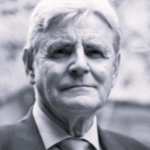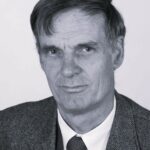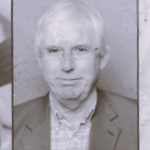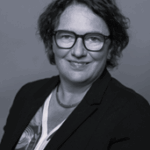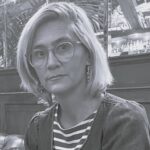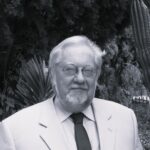Speakers for the CEIPA/PAYOKE ZOOM roundtable conference – “New Challenges for Civil Society in Times of Growing Human Rights Erosions”
Keynote Speaker
Baron Marc Bossuyt, Emeritus Professor of International Law at the University of Antwerp and Emeritus President of the Constitutional Court of Belgium. Marc Bossuyt was appointed as the first Belgian Commissioner General for Refugees and Stateless Persons (1987-1997). Amongst his numerous academic honours and achievements, in Antwerp, Bujumbura, Butare, Santa Clara, Taipei, Stellenbosch, etc., Baron Marc Bossuyt was one of the first to receive the diploma of the newly created International Institute of Human Rights in Strasbourg. Later he became for many years vice president of that Institute.
Next to his outstanding academic, legal and administrative work he took the lead position in a number of UN human rights organs. He led the Belgian delegation to the UN Commission on Human Rights (1986-1991); in 1989 he was elected as president of the same UN Commission. He drafted the Second Optional Protocol to the International Covenant on Civil and Political Rights aiming on abolition of the death penalty (adopted by the UN General Assembly in 1989). He was for 16 years member of the UN Sub-Commission on Human Rights and for 12 years member of the UN Committee on the Elimination of Racial Discrimination. His recently published book: “Right to Asylum: Between Demagogy and Hypocrisy”; (Oxford, Hart Publishers, 2025, 305 p.) is a stimulating legal accomplishment and most relevant to the UN and governments worldwide.
Speakers in Alphabetical Order
Andreas Halbach‘s work focused on human rights protection on the ground in the context of humanitarian crises and refugee situations and later on technical cooperation, policy
development, TiP, cooperation with OSCE, UNODC and the EU Eastern Partnership.
Mr. Halbach worked in Malaysia and the Philippines in the context oft the Vietnam /Cambodia / Laos refugee crises. He served as Chief Mission for IOM in Sudan in support of Ethiopian Jewish refugees and for seven years during the civil war in El Salvador where the Mission implemented a programme helping politically persecuted persons to resettle. The following posting to Croatia and Bosnia and Herzegovina during the wars in the former Yougoslavia entailed refugee protection and medical evacuation from surrounded Sarajevo.
Mr. Halbach ended up in Vienna as Director oft IOM’s Regional Office for South Eastern Europe, Eastern Europe and Central Asia, including as Coordinator for the CIS Conference (and an interlude as Regional Coordinator in Bagdad during the Iraq emergeny in 2003.) A major component of regional programming consisted in policy development, legislation assistance, project implementation and partnerships to combat TiP.
Mr Harris worked initially for the Socialist Group of the EP on budgetary and institutional affairs. After serving as diplomatic adviser to the President of the European Parliament he began from 1992 to work as an EP official on the enlargement process and on relations with other European countries not in the EU. From 2005 he was responsible for the Human Rights activities of the institution and from 2012 he worked in Washington as Deputy Head of the EP Liaison Office with the U.S. Congress.
Since retiring he has been participating in academic life in Belgium and in China.
He has written one book: The Dark Side Of Europe (1993) on the subject of right-wing extremism in contemporary Europe and has contributed to a number of academic publications, published a number of academic papers and articles on EU issues, including the enlargement process , human rights, transatlantic and EU-China relations and Europe’s normative power. He has lectured in many countries not only in the US and the UK but also in China, Israel, Poland, Belgium, France, Italy, Bulgaria, Malta, Ireland etc. He has been a visiting scholar at Cornell (US) Edinburgh (UK) and Fudan, Shanghai universities.
He was born in 1950 London and graduated from the University of Manchester before gaining a Masters´ degree at the College of Europe in Bruges, Belgium
Roger Plant, from the United Kingdom, is an independent writer, trainer and consultant. Between 2002-2009 he was the first Head of the ILO’s Special Action Programme to Combat Forced Labour, based in Geneva.
He has since consulted on issues including human rights and labour standards, trafficking and forced labour, migrant workers and corporate social responsibility for a range of international organizations, governments, financial institutions and NGOs.
With degrees from Oxford University, and visiting academic positions at universities including Colombia and Notre Dame, he has written several books and other publications. His book Sugar and Modern Slavery, published in the mid 1980s, was one of the first to draw attention to new forms of forced labour and human trafficking in today’s global economy. In 2010 he received the William Wilberforce Freedom Award in Los Angeles, in recognition of his global work again modern slavery.
Evelyn Probst is a psychologist and a feminist human rights expert and consultant with over 25 years of experience in advocacy, program development, and gender-focused policy. She works independently on team building, gender and diversity, and crisis and conflict management, and serves as Deputy Ombudsperson for Violence Prevention at the Protestant Church in Austria. Evelyn also lectures at H Campus Wien in the Department of Social Work.
She served as Executive Director of LEFÖ-IBF, Austria’s national center supporting victims of human trafficking (THB), for 25 years, leading cross-European projects and contributing to EU policy development as a member of the EU Expert Group on Human Trafficking. Her work emphasizes intersectional, feminist, and trauma-informed approaches.
Evelyn as well has lectured at the University of Klagenfurt and UNAM in Mexico City. She has served on the boards of La Strada International and GAATW, strengthening transnational advocacy networks. She is fluent in German, English, and Spanish.
Inge Saris is the Director of Payoke, one of the three officially mandated Belgian centres providing comprehensive support to victims of human trafficking. Payoke, founded in 1987, was the first NGO of its kind in Europe and remains up to date a cornerstone of the Belgian multidisciplinary approach against trafficking.
With a career rooted in human rights, social justice and inclusion, Inge Saris has worked both in Europe and Australia. While in Australia, she led Amnesty International‘s work, focusing on advocacy and public engagement strengthening the provisions of the UN Covenant on Human Rights. This international experience continues to shape her strong engagement and efforts towards improving the safeguards for victims of human trafficking on an international level.
Currently she is the Director of Payoke where she leads a multidisciplinary team that provides holistic support to trafficking survivors, combining psychosocial care, medical and legal assistance, and advocacy to ensure that victims are protected rather than punished. Inge Saris is a promoter of policy dialogue with governments, EU institutions, and international organisations.
Inge Saris is a renowned advocate of a strong mandate for NGOs and civil societies.
Peter Schatzer represents the Parliamentary Assembly for the Mediterranean (PAM) www.pam.int as Permanent Observer to the United Nations Office and other International Organisations in Vienna, Austria. He is a national of Austria.
Following studies of economics/management in Vienna and work with national and international NGOs as well as a journalist, he joined in 1979 the United Nations Population Fund as liaison and information officer, based in Geneva.
From 1984 to 1986 he served as personal aide to former Secretary General of the United Nations, and President of Austria, Kurt Waldheim.
From 1986 and for three decades, he worked with the International Organization for Migration (IOM) www.iom.int in Geneva, Rome, Berlin and Amman. As Director for External Relations he helped augment IOM’s global footprint, including cooperation with the United Nations, produced IOM’s first World Migration Report (2000) and was involved in humanitarian operations in Jordan, Rwanda, Mozambique and Kosovo. As Regional Director for the Mediterranean he oversaw the organization’s operational activities and spearheaded the opening of offices in several Northern African countries, in S. Italy and Malta. Amb. Schatzer concluded his career in IOM as the organization’s Chief of Staff.
He has lectured on migration and international humanitarian law topics, inter alia at Bergamo and Carlton universities.
From 2012 to 2020 he served as the IOM designated board member (‘Kurator’) of the Berlin-based foundation ‘Erinnerung, Verantwortung, Zukunft’ evz https://www.stiftung-evz.de, and until 2023 on the board of “USA for IOM” https://usaforiom.org/ (Washington DC).
He remains a member of the International Institute for Humanitarian Law (IIHL – San Remo, Italy) http://iihl.org/ as well as the Malta Rotary Club, the Friends of the Bregenz Festival and the Glyndebourne Opera Festival.
Patsy Sörensen is founder, past President and Board member of NGO Payoke, a non-governmental organisation focused on assisting victims of human trafficking and investigating organised crime on an international level. In her former function as Vice Mayor of Antwerp she has introduced a number of reforms facilitating access of citizens to the policy makers and opening the door for fresh initiatives towards equal opportunities and gender balance. As European Parliamentarian she has introduced a number of new initiatives in the broader field of human rights, judicial prosecution of perpetrators of crime and improved safeguards for victims of human trafficking. Patsy Sörensen was heavily involved in formulating the policies towards EU enlargement and led negotiations with a number of candidate states prior to their membership in the European Union. From her early profession as art teacher to her political career as Vice Mayor of Antwerp and Member of the European Parliament, Patsy Sörensen has demonstrated her full commitment to cooperation with the new EU members States, with ACP countries with the aim of combating organised crime, corruption and creating improved legal protection for victims of injustice and exclusion.
Born on 11 August 1955 in Belgium, Marc Van den Reeck graduated in 1977 from the Rijksuniversiteit Gent (RUG) in macroeconomics and entered the Belgian Diplomatic Service in 1980.
Earlier diplomatic functions included Strasbourg (Council of Europe), Lusaka (Zambia), Maputo (Mozambique), Washington DC (US) and Athens (Greece).
As head of mission he served as Consul-General in Istanbul, Turkey (1997-2002), and ambassador to the UAE (2002-2005) and Greece (2011-2015).
During tours of duty in his home country he was a.o. head of the NATO/WEU/European Defence Department at the Ministry of Foreign Affairs (1995-1997), Diplomatic Advisor to the Minister of Justice (2007-2009) and Deputy Chief of Cabinet of the Minister of Foreign Affairs (2009-2011).
During a sabbatical (2005 – 2007) he integrated into the Central Bank of the UAE as Advisor to the Governor, for European Affairs, and Member of the UAE Central Bank’s Assets and Liabilities Committee.
He is now retired and, on a volunteer basis, he is the Head of International Cooperation at the Greek NGO “The Smile of the Child”, the country’s largest civil society organisation, active in child care and child protection, a.o. representing the organisation at the OSCE, Council of Europe, EU and UN agencies.
His mothertongue being Dutch, he is fluent in Modern Greek, English, French and Spanish and furthermore reasonably commands Portuguese, Italian and German, with fair notions of Turkish.
Astrid Winkler, Independent expert and trainer, Prevention of sexual exploitation of children, Safeguarding & Measures against Child Trafficking, Austria and international. 2001-2023 Co-Founder and CEO of ECPAT Austria. Since September 2023 Expert/Trainer/Teacher for ECPAT Austria in the specialist areas of Safeguarding & (Child) Protection Concepts; identifying and caring for victims of child trafficking; Online safety for children & young people. Since 2008, Member of the Austrian Task Force to Combat Human Trafficking and the AG Against Child Trafficking. Since 2018, member of the EU Civil Society Platform against Trafficking in Human Beings. Lecturer and trainer in Austria and abroad, main topics: Safeguarding and developing respective concepts and guidelines as well as protection and identification of trafficked minors and in adult education, anti-discrimination work & violence prevention. She holds a Master degree in Sociology, with minor fields of studies in communication sciences and political science, and in psychology.
Moderator
Peter von Bethlenfalvy, Founder and Executive Director of CEIPA – Centre for European and International Policy Action, has a long professional experience of European and international cooperation in the field of migration, foreign and development policies, security and human rights. He formerly held leading positions at IOM – International Organization for Migration in Brussels, Berlin, Rome and Vienna. He has been the driving force in strengthening the European Union and the UN International stance towards a number of issues such as economic migration, organized crime and trafficking in human beings, democratization and parliamentary elections as well as humanitarian and emergency aid. He advised and worked closely with a number of EU Presidencies and European Commissioners as well as leading European Parliamentarians in carrying forward EU and UN policy priorities. His experience and commitment led to numerous policy improvements in the above fields in Europe and has significantly strengthened multilateral cooperation between governments, UN and international organizations as well as civil societies and academia.
